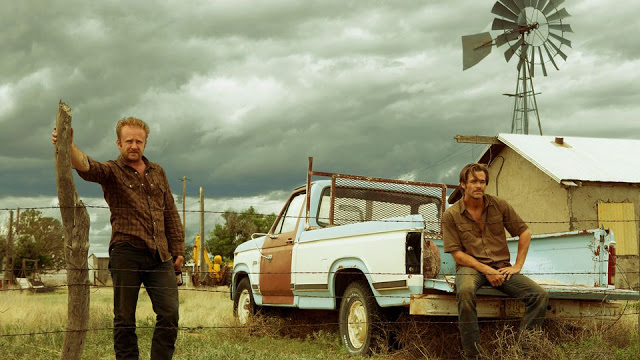Hell or High Water: Paying Off That Mortgage, No Matter the Cost
The dusty Texas landscape of Hell or High Water is dotted with brightly colored billboards, each promising salvation to those in need. The path of this purported deliverance is not spiritual but financial; neatly lettered signs like “Fast Cash” and “Debt Relief” court blue-collar laborers who are behind on their mortgages or their bills. The striking visual contrast—between the glossy print of the highway advertisements and the dilapidated cars and trucks that drive past them—hints that these assurances are illusory, a cruel commercial ploy to exploit the perpetual suffering of the working class. It’s an accurate impression, as the movie is, in part, a damning indictment of corporate avarice, one that recalls the impotent rage of The Big Short, only with the gleaming skyscrapers of the Big Apple replaced with the vast and desolate ranches of the heartland. Hell or High Water is in many ways a classic heist picture, but the true thieves depicted here are the banks.
That may sound a tad polemical, and it’s fair to criticize Hell or High Water for tarring and feathering an avatar of exaggerated evil that has already been burned in cinematic effigy. (Recent examples include 99 Homes and Money Monster, though the closest comparator here is Killing Them Softly, Andrew Dominik’s seamy underworld yarn that embellished its pulpy narrative with persistent commentary on the government’s post-Katrina nonfeasance.) But this smart, soulful movie is too nuanced—and too compassionate—to be reduced to its talking points. Its message may be broad, but its details are thrillingly specific. Read More


